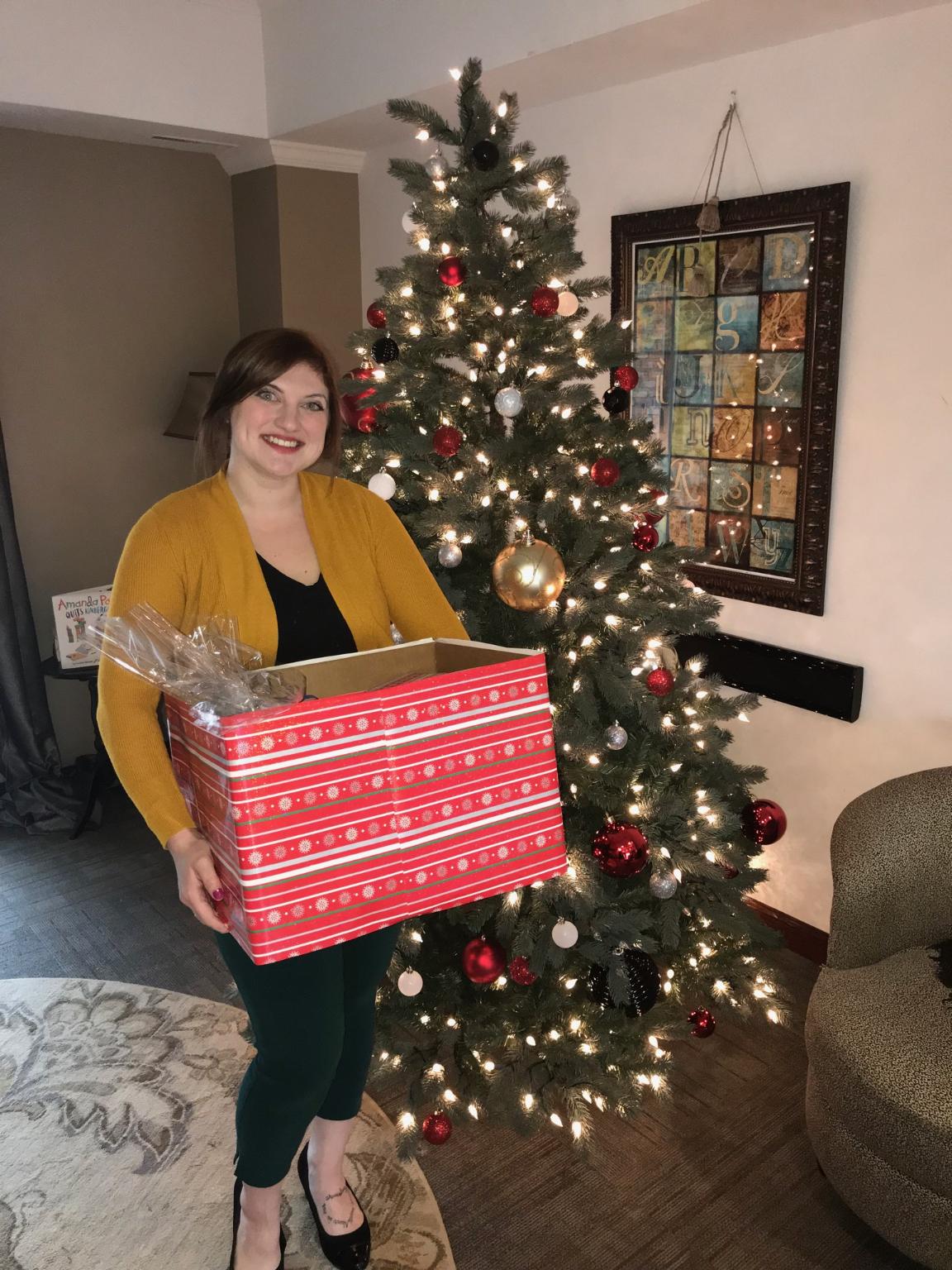December 10, 2018
A Story from Our Amanda the Panda Program: Madee Carder

Madee Carder almost didn’t attend the class that would change her life. Like many grief support professionals, she took the scenic route on her journey to her life’s passion, and ultimately, her role at EveryStep’s Grief & Loss Services’ Amanda the Panda program.
“I have always known that I wanted to work with children and adolescents. So I actually started out going to school as an elementary education major,” Carder explained.
When a representative from Hamilton’s Funeral home visited her children’s literature class to talk about their grief and loss program, Carder was surprised to learn that such programs for children even existed.
“The next day I was in my advisor’s office changing my major [to] Child, Adult and Family Services” she recalled.
Carder now works at EveryStep’s Grief & Loss Services’ Amanda the Panda program, assisting families as they grieve the loss of a loved one.
“Since we are dealing with a lot of family units, it just opens that door for them to be able to have those comfortable conversations at home,” Carder notes.
One way Amanda the Panda helps start those conversations is through weekly support group meetings.
Trained facilitators lead support group activities and discussions, which are tailored according to the participant’s age. While kids enjoy fun games and activities, teens and adults engage more in discussion and story sharing. As a bonus, everyone is served dinner before the meeting begins.
Another program is Camp Amanda the Panda, a weekend where participants of all ages engage with peers to learn and grow from one another’s experiences. From making tie-dye t-shirts to throwing eggs at an ‘anger wall,’ the main focus is to facilitate a peer-to-peer connection so that participants feel more comfortable sharing and working through their grief.
“It’s amazing to see the transformation that happens at Camp and…at support group,” explained Carder. “They come in the first week and you can just tell they’re like ‘what did I get myself into, where am I, what are we doing here.’ By the last week the kids are running the entire house [and] the adults are all talking in the hallways before they have to go to [support] group.”
Such grief support programs also have a lasting impact on families. Carder remembers a special incident when she met a widowed woman during a meeting at the Amanda the Panda Family Grief Center in November 2017.
The woman had attended Camp Amanda the Panda back in 1999 and recalled receiving little red candles in the shape of a bear. She used to light those candles in memory of her deceased husband and having just run out of them, she was hoping to get more. Carder recognized the significance of the candles and immediately gave her more from the large supply in the basement.
“That was just amazing that they came back after so long to honor that person again and to keep a connection with Amanda the Panda,” said Carder.
While Carder enjoys such moments in her work, she also admits that sometimes situations can be emotionally difficult.
“There was an instance of an extremely difficult phone call that I took one day,” recalled Carder. “A baby had died in a very tragic way and my son was the same age. I had to take a few minutes to just be by myself and be emotional.”
Carder appreciates having a supportive work environment at Amanda the Panda to help her through such tough experiences and she can always rely on her close-knit staff for support. For Carder, “the rewards outweigh the sadness by so much.”
The most rewarding aspect of her work is the opportunity to develop close connections with the participants.
“Some of these kids, and even some adults, don’t feel comfortable talking about [their grief] in their personal lives at work or at school. To be able to do those meaningful activities and just get to listen to their stories, I think, is just really awesome” Carder said.
While opening up about one’s grief to complete strangers in an unfamiliar place can be initially difficult, Amanda the Panda strives to provide a welcoming and non-judgmental environment to all participants.
“The most important part is just to have that courage to walk in the door no matter where you’re at in your grieving process,” explained Carder. “Even if you’re three years down the road you can still come, because we know that it’s not a journey that ever ends.”
Carder mentioned that research has shown that kids connect better with other kids who have experienced any type of loss. Providing a space to cope with grief is equally important for kids, even if their expression of grief may not be as apparent.
“I would say the kids benefit the most because we know that [grief] does affect them. Even though sometimes adults might think…they are a kid [and will not] be bothered by this, I think it’s extremely important that we have those services for them, especially our teenagers,” Carder said.
Volunteers also play a vital role in running all programs at Amanda the Panda. From helping facilitate activities at Camp Amanda the Panda or support group meetings to wrapping gifts at the annual Cheer Box program, Carder says that they “are always looking for volunteers.”
If you are interested in getting involved with Amanda the Panda, or know someone who could benefit from their programs, please visit everystep.org/services/grief-loss for more information.
This story is an edited excerpt of a piece written by Drake University student Phani Chevuru.